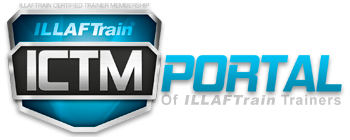Investment of Thinking - Creative Thinking
Course id: 703
Duration: 5 Day/ 5 H per day
introduction
Everyday we face challenges and problems where the traditional thinking will be useless in solving or handling them. At the time we are in urgent need to get out of the bottle neck, you find us moving round in a hollow cycle of futile thinking. Where does the problem lie? Is the creative thinking restricted to some lucky people because they were born intelligent? Is the basis of the problem what we have been exposed to of experiences in an environment that hinders innovation and encourages the classical thinking which is bound to custom? Is the creation of the innovative ideas an inspiration process, unconscious and uncontrollable? Innovation is a conscious action made through targeted effort. Everyone can learn this skill same as he learns all the other skills. To be innovative, man does not need a degree of intelligence over the average. Not all the intelligent persons are necessarily innovative, and not every innovator has a high degree of intelligence. At this level, you will possess the innovation skills and what is suitable to you from its strategies, and you will use the techniques of the innovative unconscious programming which will enable you to be in the optimal condition for innovation which you employ.
Prerequisites
Completion of the first and second levels of the "Investment of Thinking" Program is useful but not necessary.
Audience
br> This Course is for any seeker for individuation and distinction such as the businessmen, investment managers, functionaries, lawyers, reporters, engineers, doctors, artists, writers, bankers, teachers, principals, educators, sportsmen, free professions owners, and anyone having the desire to open new horizons to promote his human performance.
Objectives
The Trainee will become able to:
Content
br> The First Day:
-
Positive innovation messages.
-
Affording a condition of mind clearness and flow (Altradian Rhythms).
The Second Day:
-
Determining the problem.
-
Eliminating the errors.
-
The requisites.
-
Closing the stream.
-
Escaping from the prevalent idea.
-
Challenging the concept.
-
Distorting the postulates.
-
The random stimulator.
-
The sudden cessation.
-
Changing the interest area.
-
Supporting stone.
-
The innovative list.
-
Evaluation.
-
Choice.

